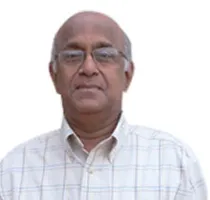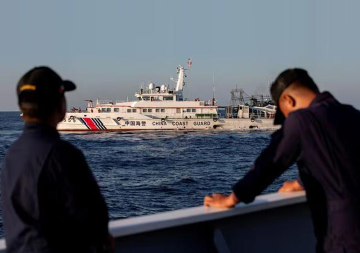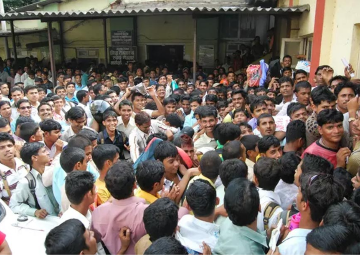
On 7 April 2020,
Japanese Prime Minister Shinzo Abe declared a state of emergency for Tokyo and six more prefectures – Kanagawa, Chiba, Saitama, Osaka, Fukuoka and Hyogo – to respond to the dangerously surging coronavirus cases in those areas. Within ten days, on 16 April, Abe followed it up by extending the state of emergency to the entire nation.
Given his earlier position on the crisis which was
criticised as “slow and hesitant”, many in Japan are apt to speculate the reasons that spurred Abe to act so swiftly after 7 April. One reason, of course, should be seen in the dramatic way in which the number of cases was spreading in the whole country. Statistical figures indicate how the figures, having started rather slowly during the month of January-February, tended to pick up fast from mid-March. Later, Covid-19 cases rapidity doubled in numbers every third or fourth day. It is also useful to note that on 7 April, when Abe made his first emergency declaration, the total number of cases was only 4257. But it jumped alarmingly to 9167 on 16 April, when
he extended the emergency to the entire nation. In his own statement at that time, Abe admitted that Japan’s medical system could not withstand the mounting pressure stemming from the rapidly increasing number of cases. For instance, on 21 April, the total number of cases in Japan mounted to a whopping 11543 with 283 deaths. An official task force under the Health Ministry had warned the government that if no speedy measures were taken in time, 40, 000 people could be killed by the pandemic in Japan.
Second, Japan’s decision on emergency came at the end of a policy-related
disagreement between the Tokyo Metropolitan government under Governor Yuriko Koike and the central government. Abe believed that a solution to the Covid-19 crisis could come through a stay-at-home policy and social distancing. He therefore thought of persuading the people to reduce their social contacts to the level of 70 to 80%. Since the government has no legal authority to force people to stay away from their normal activities, it could only gently request them to observe self-restraint or “jishuku”. But, Governor Koike believed that “merely asking the people to observe self-restraint is not enough.” She argued in favour of restricting the use of cluster-carrying facilities like restaurants, karaoke parlours and entertainment centers. But Abe was not in favour of reducing the commercial and business activities in the country. It is also important to note that Abe until the last moment was hoping to stage the Olympics in July. Strangely, after the announcement of the postponement of the Olympics on 24 March, there was a dramatic spike in the number of coronavirus cases, giving rise to suspicion that the government was deliberately understating the coronavirus cases to keep the prospects of the Games alive.
It is now a fortnight since the Abe government issued its declaration of emergency and there has not been any significant improvement in controlling the epidemic. On the contrary, the cases of the virus have recorded a big spike in major cities and prefectures. Social distancing has not achieved the kind of success expected by the government. People still travel in packed trains and other modes of transport. Hospitals are overflowing with patients and there are numerous complaints about serious shortages of protective kits, gowns, masks and body shields.
The outbreak of the virus has virtually exposed the weaknesses of the Japanese medical system itself. Japan lacks enough hospital beds, ICUs, health workers and equipment. ‘The Japanese Association for Acute Medicine’ and ‘the Japanese Society for Emergency Medicine’ issued a joint statement lamenting that the collapse of the emergency had already happened in Japan. Health care workers are highly stressed in the current situation and demand high-risk allowances and better medical kit.
Realising the dire conditions of the people,
Abe introduced an economic stimulus package worth about 108 trillion Yen ($980 billion) to bring some relief to the people. The package, which forms 20 per cent of Japan’s GDP, is the biggest ever in Japan’s post-war history. It seeks to extend 100,000 Yen per individual to all citizens irrespective of age and status for facing the stresses of the epidemic. Similarly, it also provides about two million yen to the small and medium size enterprises for overcoming their current difficulties.
It is difficult to assess what kind of long-term impact the Japanese economy will have from the present crisis. Economists are still assessing the damages caused to the national economy by the crisis. But they fear that the Japanese economy, which had been facing severe challenges since last October, will plunge into a deep recession as a result of the ravages caused by the Pandemic. They expect the manufacturing and exports to suffer in a very big way.
Apart from the economic fall-out, the Covid-19 has also
cast a deep shadow of doubt on the political agenda of Abe. It has almost punctured many of his political ambitions. First and foremost, his earlier vow that he would get the Japanese Constitution amended by 2020 will remain an unfulfilled dream. He has earlier believed that the July Olympics would boost his political strength and popularity that could be used to hasten constitutional amendments. But all these calculations have no relevance in the midst of the raging pandemic and no serious Japanese politician is in a mood to even talk about amending the constitution. Even if the coronavirus crisis is solved in the coming months, the single most important issue that will call for immediate attention is the recovery of the national economy. The pandemic has ravaged the economy and the country is on the brink of a prolonged recession.
In the midst of so many uncertainties created by the pandemic, there are already indications that some of the LDP leaders with prime ministerial ambitions like Fumio Kishida and Shigeru Ishiba have started making political moves with an eye on the party presidential election due to be held in September next year. There is no doubt that the Covid-19 crisis has upset the political calculations of Abe. Until last January, there were rumours that Abe, after staging the Olympics, might even stake his claims to contest the party president’s post for the unusual fourth time. But under the present altered circumstances, this appears to be a far cry.
Abe, however, has already created history as the longest serving Prime Minister of Japan and he should concentrate more on the economic recovery of the country in the post-Covid -19 and leave a lasting legacy for the future.
The views expressed above belong to the author(s). ORF research and analyses now available on Telegram! Click here to access our curated content — blogs, longforms and interviews.



 On 7 April 2020,
On 7 April 2020,  PREV
PREV


